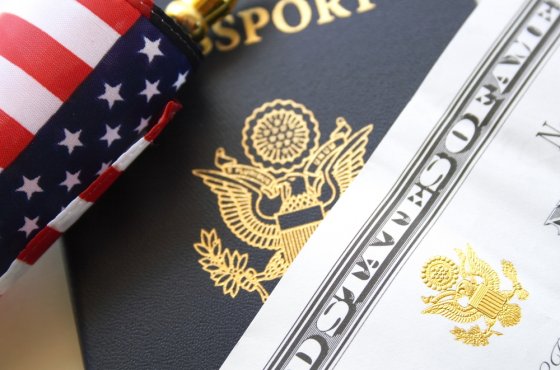From Russia with love: how the Russian publishing house makes books for American children
Usually the books of American publishers are translated into other languages of the world, including Russian, and they shoot films or put on plays. But the Russian publishing house Clever is acting the other way around, and already in the fall of 2018, the American market is releasing a large collection of books for preschoolers.

Фото: Depositphotos
Edition the Village asked the CEO and founder of the publishing house Alexander Alperovich and the lead editor Natalia Vorobyova about how the different principles of raising children in Russia and the States affect the content of books and illustrations and why draw porcupines instead of hedgehogs.
About the American market
ALEXANDER: As a publisher, we constantly see what else can be done using our resources and our perception of reality. We had a lot of different ideas, one of which was access to Western markets. At first, it looked absolutely absurd and fantastic: we have no such precedents, not a single Russian publishing house has ever entered the book markets in other countries.
We have been engaged in analytical work for more than a year: we studied who, where and how moved in parts of books and book publishing, which book markets are growing faster, where conditions for promotion are better. Naturally, not everything is determined by language, but the American book market is now number one in the world, it is huge (annual turnover is more than 30 billion dollars, the Russian one has about 2 billion. - Ed.). And, of course, we more or less thought that we speak English, read English, so we will be a little more comfortable interacting with America. Well, America is a country of opportunities, a country of migrants, and it is in the top ten countries where it is easy to start a business.
About the choice of books
ALEXANDER: By our standards, for the Americans we made a not very large collection - it included 56 books. For comparison: in Russia, we release 500 new products for the year, that is, approximately one-tenth of our volume. Therefore, we treat the story of adaptation as a challenge - this is not a global project, we need to catch on, show sales and move on.
NATALIA: We stopped at the strongest part of our range - these are books. pre-school, for children from birth to five years. We call them edutainment - something between education and entertainment. That is, we have not really books and not really games: these are game books that entertain and simultaneously teach. And if, at the age of five, the child already knows what a book is, then up to about three it’s basically cardboard that you can play with: cubic books, games, puzzles, cards — we just focused on these publications.
In the process of selecting books, we, of course, had to abandon our favorite publications, which sell well in Russia, but are completely unsuitable for the American market. We have a book “Find and Show in Russia”, which last year was awarded the “Book of the Year” award. We prepared it, in my opinion, for three years, for a very long time we developed a concept and painted illustrations. But it is impossible to translate it into English, because the essence of this book is to find out what such a shuseki, yarmulka, chisel or cleaver is, that is, all these concepts and objects that have practically come out of our daily use that children encounter when they start reading Russian classics - the same "Filippka", for example.


About the names and children's questions
NATALIA: We believe that we have a very successful publisher name - Clever. Here in Russia it is commonly associated with clover and birdies. But our logo is in English, and in translation it means "smart." Therefore, we looked at where you can use this pun. As a result, we have a series Clever Puzzles, Clever Games, Clever Hands (“Drawing with fingers and palms” by Olga Uzorova) and so on.
After that, we began to study children's books in the American market, to look at our competitors, at various publishers who publish their books in Europe - as they call or translate their titles. For example, the same transport in English - transportation - Try to explain to a small child what it is and it sounds awful. But the Americans themselves call books about cars "Things that go"(" Pieces that Move ") - and it can be anything: a helicopter, a train, a machine, a cart, and so on.
If we translated the same “Professions” directly, it would have turned out a manual for older students, and not a book for young children, which is actually fun. In the English version, we came up with the name "What will i be"-" Who will I be? ". And this is more understandable to a small child at the age of four, when he is just beginning to be asked “who do you want to be when you grow up?” - and he answers: an astronaut, a ballerina, an actress, and so on.
And, in principle, we used this algorithm for inventing American names everywhere: we didn’t translate word for word, but rather got to the bottom and described it already, working with associations. That is, at first, of course, it was a literal translation, but then we started to see how this title captures the essence, correlates with other books of similar subjects on the market - that is, if you put “What will i be" and "occupations“Then, it seems to me, the child will choose the first option: it’s such a living question that the child asks, he will most likely react to it — he wants to know who he can become, and not what professions there are.
At one of the turns, we removed the boy, who played with matches in the Russian book - this is a rather subtle point that should not be shown to young children.
Pro lawyers, guns and safety rules
NATALIA: We reviewed each selected book with our lawyer and revealed all the bottlenecks, about which we would like to consult with the American editor, whom we invited to work on the project - this is so or not. In America, each state has its own laws, and, for example, a major American retailer Toys “R” Us I had to remove all the kits with the policeman, the sheriff, the ranger and so on from the shelves, because they had some kind of weapon - now there is very strict with this because of the tragedies in the schools. In one of the states in children's books it is forbidden to depict weapons, so all the books with police officers who catch criminals in this state would not get on the shelves at all - simply because they are all with guns.
There are a lot of nuances that are not immediately visible - it was necessary to think and work on them. We know something ourselves, some absolutely banal things: there is no Santa Claus, there is Santa Claus, or elves instead of Snow Maiden. But there are unobvious moments that the American editor warned us about. For example, we clashed on the basis of hedgehogs: in almost every Russian children's book there is a hedgehog - a cute character who drags an apple-mushroom on his back. But as it turned out, American children do not really know the hedgehogs, so in the books we changed them for porcupines.
An interesting story turned out with a book about transport: in our books, often heroes without helmets and additional protection ride a snowmobile, bicycles or scooters. In the United States, children almost from birth are taught that they need to wear a certain form, comply with certain safety rules and so on. And this approach is reflected even in books: if a 15-year-old teenager rides a bicycle, then he is sure to wear a helmet and all equipment.


About regional features, equality and military
NATALIA: At the same time, we began to look for any national peculiarities, if they were. For example, in one of our books on account training a pirate ship is drawn, which runs between the islands. In each port pirates descend from it and the natives enter. In our version, the natives are such strongly tanned people with an earring in their ears and in loincloths. And it turned out that this is such a very thin line that had to be worked out, because the Americans might be offended because of this image. And we had to dress all the natives in t-shirts so that they were on a par with the sailors.
This is generally a rather subtle question - the question of equality. For example, we have New Year's notebooks: blue for boys and pink for girls - they differ slightly in content, just colored covers. But in the States, this can be perceived as discrimination - and we redid the cover: we changed the color and title to be fairly neutral. Again, as soon as you write on the cover of the word "Christmas”, You immediately dismiss people who are celebrating Hanukkah, or people from Africa who do not have Christmas. This is such a common holiday time, but each holiday can be called differently - that is why we left "Holidays" In the title.
ALEXANDER: We are faced with the fact that we need to paint people with different skin color. All our children are equally white - in our children's books there are neither Asians nor Mexicans, and there is some kind of habit of perception, patterned thinking, within the framework of which we move. But when you go beyond these boundaries, you realize that the world is arranged a little differently. Americans cannot imagine that people can be the same color, that they are all the same.
What else is very interesting: as it turned out, we love to draw the military. In general, this whole story of militarization often appears in books in our country. And we are asked to clean it, because in the States in books for young children there is no such thing. And we have soldiers in the books, February 23, patriotic themes. For some reason, patriotism is somehow connected with the militaristic theme: we are patriots, because we have won some wars.
About the process
NATALIA: There are projects that are easy enough to alter. The game “Portraits” is an example of easy rework, because I only had to make a box and instructions. This is an author's development - about how to teach a child emotions, and we have no difficulties with this in the American market: emotions are the same everywhere. We simply translated the instructions, adapted them to make it more understandable.
There is an adaptation of medium complexity - for example, the book “Transport”. Most of all I had to get around with one of the turns, where in the Russian version there is transport with a turnstile, trams (which in the States are more like tourist transport for entertainment, not city), again the classic Moscow metro and train with a compartment. In the American version, instead of an ASKP, a yellow bus that takes children to school, instead of a tram, a regular bus appeared that carries passengers, including disabled people — there is generally special attention to slow-moving groups of the population. A typical Moscow metro moved to America and became a typical New York, and high-speed trains appeared instead of a coupe.
In the same book there is a reversal with fire engines - it was also remade quite strongly, but the plots remained the same, only the car looks a little bit different, and the fireman’s helmet turned yellow in the American manner. But at this turn, the crucial moment that we discussed with the lawyer: we removed the boy who played with matches in the Russian book - this is a rather subtle moment that should not be shown to young children. Therefore, in the American version of a fireman extinguishes a lit urn.
And the most difficult adaptation is the cards. In general, everything related to activization is quite difficult processing, because in Russian games some puzzles and rebuses are quite popular, which, naturally, work very well in Russian, but, no matter how you translate it into English, it works there will not be - you need to invent a new rebus. This is a very fun experience, because we do the same when we buy rights to activate in other countries - we process everything very deeply in the same way: we come up with new puzzles from the pictures that they have.
In our project there is one box with cards, which we had to draw from almost nothing, leaving only the concept - this is the “Smart Alphabet”. The essence of the cards is that there is some kind of letter, various variants of its writing, a small rhyme and an object whose name begins with this letter. In another similar box with the Russian alphabet there are stencils - learn to write letters, draw some objects, forms, and so on. We added the writing of the letter to the card itself, a talented author who writes poems well, wrote us poems, here we have a hero who begins with this letter. Plus, we added stencils from another box, but not with Russian, but, respectively, with English. Now we are doing it for Russia, so that our children learn the English alphabet.


About why to engage in adaptation
ALEXANDER: One of our global differences from the same Americans is that we are very closed. And despite the fact that there is a constant discussion inside that we are the center of the Universe and the whole world revolves around Russia, it turned out that closeness is a problem of some of our provincialities in principle. In general, we see this provinciality everywhere: we live in Moscow, the capital of Russia, and every more or less large Russian city is the capital of something else - the residents themselves invent some kind of status. For example, Voronezh is the capital of the Black Soil Region, Rostov-on-Don is the capital of the Southern Federal District, there is still the capital of Eastern Siberia, Western Siberia, the Southern Urals, the cultural capital of Perm, and so on. That is, in nature we have this making ourselves the center of everything.
This is such a part of provincial life: despite the fact that I am so small, I am special. As soon as we step over this provinciality in a global sense, when we stop thinking about ourselves on this provincial scale and learn how to take steps outside, a huge number of problems will be removed, including internal ones. But in order to make this step outside, you must at a minimum accept all your shortcomings and recognize your merits. A person who is afraid to take a step forward, most likely, in reality does not understand what he is. And we are engaged in publishing these things. Of course, they look ridiculous - these little changes we make to books. But it becomes clear that this is such a part of global culture.
Yes, there are differences everywhere, and for one phenomenon there is a bunch of names. And this must be taken into account. But this is not a question of mentality, but of accepted things. It is very difficult for me to explain this, but we don’t bother at all with mentalities. We do not want to transplant the Russian mentality to America or American to Russia. We are not talking about mentality at all. We are about what children like. And the editor itself doesn’t answer the question about Easter bunnies or eggs and Christmas or New Year, but about what should be suitable for children. There is a lot of controversy at the level of aesthetics - where does the mentality come from? We, for example, love rich covers with lots of small details, but the American editor says that we need cleaner covers with a simple design - and we listen to this.
I am in a good sense for globalization - the children are the same, the parents are the same, everyone has the same needs, dreams, ideas of happiness. We also looked at the world for 30 years of free life after the Soviet Union, learned to position ourselves, spoke in foreign languages. The mentality is an attitude: you understand what you say, when you speak, and purposefully do some things, good or bad. And these are just some habits that appear in the air. Which can be freely changed to be more global.
Read also on ForumDaily:
In New York, we opened applications for Pre-K classes: how to enroll for free
Overview of Russian online stores in America
5 unpleasant things worth knowing about American colleges
How to learn English words quickly: 15 simple tricks
Subscribe to ForumDaily on Google NewsDo you want more important and interesting news about life in the USA and immigration to America? — support us donate! Also subscribe to our page Facebook. Select the “Priority in display” option and read us first. Also, don't forget to subscribe to our РєР ° РЅР ° Р »РІ Telegram and Instagram- there is a lot of interesting things there. And join thousands of readers ForumDaily New York — there you will find a lot of interesting and positive information about life in the metropolis.











